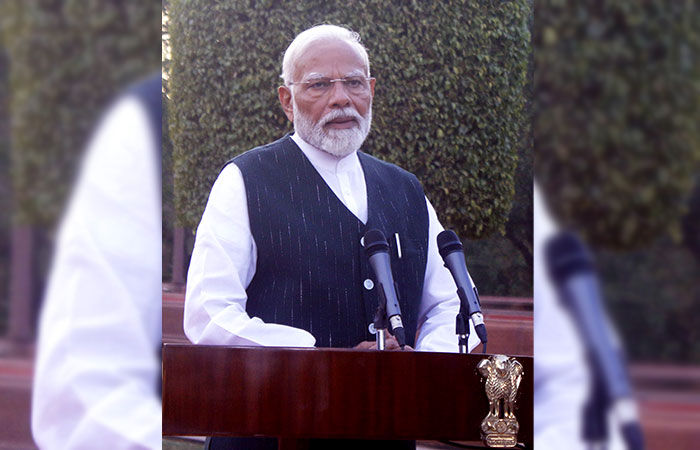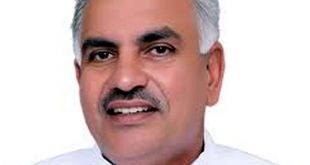
The results of the Lok Sabha elections are out. The NDA alliance has got the majority. The NDA has elected Narendra Modi as its leader in the parliamentary party meeting. He has presented a claim to form the government to the President. Now on the evening of June 9, there will be a swearing-in ceremony of the Prime Minister and the Council of Ministers, in which Narendra Modi will take oath as the Prime Minister for the third time. So then anyone can ask whether there is a difference between the oath of the Prime Minister and the MPs? Why does the Prime Minister take oath twice? So let's know the answers to these questions.
What is the difference between the oath taken by a Prime Minister and an MP?
According to the Constitution, the President administers the oath to the Prime Minister and Ministers. This time President Draupadi Murmu will administer the oath to the Prime Minister and Ministers. Narendra Modi will take oath as Prime Minister and cabinet members will take oath as Union Minister, Minister of State (Independent Charge) and Minister of State.
The format of this oath is different from the oath of MPs. All these leaders take an oath to act according to the Constitution, but the Prime Minister and ministers also take an oath of dignity of office. Members of Parliament elected to the House take an oath to keep faith in the Constitution and perform the duties according to their office. However, the Prime Minister or any minister who is not a member of the Lok Sabha and the proceedings of the House can appear in the House to answer questions of members because the Cabinet is answerable to the Lok Sabha (and Rajya Sabha) according to the Constitution.
Every elected member of the Lok Sabha has to take an oath
The swearing-in ceremony of MPs is led by the President. According to Article 99 of the Constitution, before taking a seat in the Lok Sabha House, an oath is administered before the President or a person appointed by him according to the format given in the Third Schedule of the Constitution. During the swearing-in ceremony, the Prime Minister and any minister are not required to be members of the House. That is, to become the Prime Minister or a minister, it is not necessary to be elected to the Lok Sabha nor to be a member of the Rajya Sabha, but the Prime Minister or any minister must be elected as an MP in any House within six months after taking oath of office.
The oath is administered to the members of Lok Sabha by the Pro-tem Speaker
Before the constitution of the new Lok Sabha, i.e. before the first meeting of the new Lok Sabha, the old Speaker resigns. That is, there is no Speaker or Deputy Speaker of the Lok Sabha. Before his election, the President elects and administers the oath to one of the newly elected members as the Pro-tem Speaker for the first session of the Lok Sabha as per Article 95(1) of the Constitution.
After the election of the new Speaker, the post of Protem Speaker automatically becomes vacant.
Traditionally, the most senior elected member of the House is elected as the Protem Speaker. The Protem Speaker presides over the first meeting of the House and administers oath to other members. If in any situation a member cannot take oath in the first meeting, he can take oath later. For this, he has to inform the Secretary General of the Lok Sabha and after the election of the new Speaker of the Lok Sabha, the post of Protem Speaker is automatically cancelled.
 look news india
look news india
